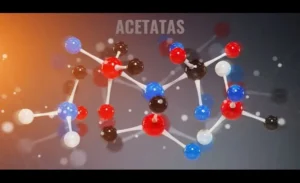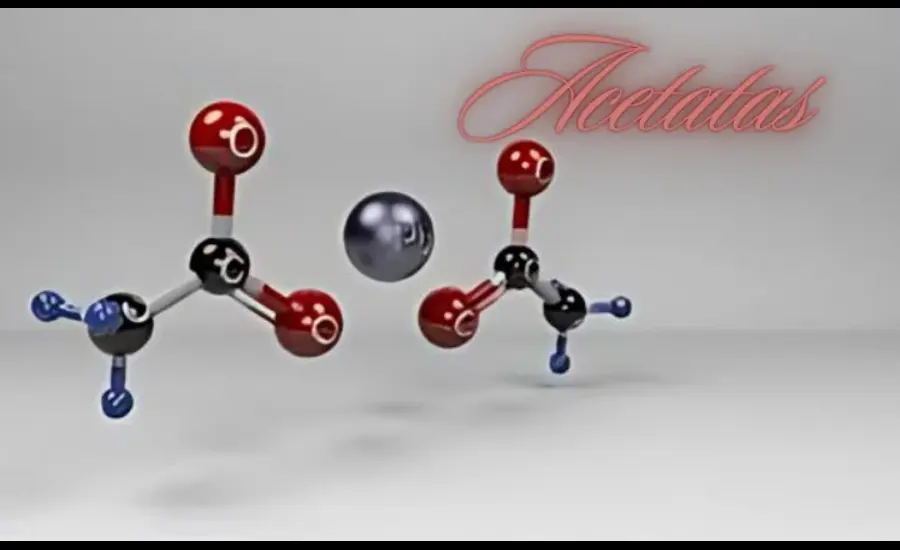Acetatas: Understanding Its Significance and Applications
Acetatas, commonly referred to as acetates, is a broad term encompassing a variety of compounds and materials widely used in various industries. Whether in chemistry, manufacturing, textiles, or pharmacology, acetates have proven invaluable due to their unique properties and versatile applications. In this article, we will delve deep into the significance of acetates, exploring their different types, their chemical characteristics, and the myriad of ways they are applied in both industrial and everyday contexts. We will also highlight six great applications of acetates that underscore their importance in modern society.
What Are Acetates?
Acetates are salts or esters derived from acetic acid, a simple carboxylic acid with the formula CH₃COOH. In chemistry, the acetate ion is represented by the formula CH₃COO⁻. Acetates can exist in various forms, including organic and inorganic salts, and they are commonly used as solvents, additives, and reagents in chemical processes. The term “acetate” can also refer to the anion formed by the deprotonation of acetic acid, as well as to the esters formed when acetic acid reacts with alcohols.
Chemical Characteristics of Acetates
Acetates are known for their chemical stability, making them highly useful in various reactions. The acetate ion is relatively stable and does not readily undergo oxidation or reduction. This stability allows acetates to be used in processes where other ions might decompose or react undesirable. Additionally, the presence of the carboxylate group (COO⁻) gives acetates the ability to form strong ionic bonds with metal cations, making them ideal for forming salts.
The solubility of acetates varies depending on the metal cation they are paired with. For example, sodium acetate (NaC₂H₃O₂) is highly soluble in water, while calcium acetate (Ca(C₂H₃O₂)₂) has lower solubility. This characteristic is exploited in various industrial processes, particularly in the separation and purification of different compounds.
Types of Acetates
Acetates come in many forms, each with its own unique properties and applications. Some of the most common types of acetates include:
- Metal Acetates: These are salts formed by the reaction of acetic acid with metal hydroxides or metal oxides. Examples include sodium acetate, calcium acetate, and zinc acetate. Metal acetates are widely used in industrial processes, including as catalysts, stabilizers, and reagents.
- Cellulose Acetate: This is a derivative of cellulose, a natural polymer found in plants. Cellulose acetate is produced by acetylating cellulose fibers with acetic anhydride. It is widely used in the production of films, fibers, and plastics due to its excellent properties, such as transparency, flexibility, and resistance to degradation.
- Vinyl Acetate: This is an organic compound used primarily in the production of polyvinyl acetate (PVA), a polymer used in adhesives, paints, and coatings. Vinyl acetate is produced by the reaction of ethylene with acetic acid in the presence of a catalyst.
- Ethyl Acetate: A widely used solvent in the chemical industry, ethyl acetate is produced by the esterification of ethanol with acetic acid. It is commonly used in the production of paints, coatings, and adhesives, as well as in the extraction of natural products.
- Methyl Acetate: Another important solvent, methyl acetate is produced by the esterification of methanol with acetic acid. It is used in the production of adhesives, coatings, and as a solvent in various chemical processes.
- Isopropyl Acetate: A solvent with a fruity odor, isopropyl acetate is produced by the esterification of isopropanol with acetic acid. It is used in coatings, inks, and as a flavoring agent in the food industry.

Applications of Acetates in Industry
Acetates play a crucial role in various industries, from manufacturing and textiles to food and pharmaceuticals. Their versatility and unique chemical properties make them indispensable in many processes. Below are some of the key applications of acetates in different industries.
1. Textiles and Fabrics
One of the most well-known applications of acetates is in the production of textiles and fabrics. Cellulose acetate, in particular, is widely used to produce fibers that are used in clothing, upholstery, and other fabric-based products. Cellulose acetate fibers are prized for their softness, smoothness, and ability to mimic the appearance and feel of natural fibers such as silk. Additionally, cellulose acetate is hypoallergenic, making it ideal for use in clothing for individuals with sensitive skin.
Benefits of Acetate Fibers in Textiles:
- Softness and Comfort: Acetate fibers are smooth and soft, providing comfort when worn close to the skin.
- Hypoallergenic Properties: Cellulose acetate is non-irritating and suitable for people with sensitive skin.
- Versatility in Fabrication: Acetate fibers can be blended with other materials to enhance the properties of the final fabric.
- Durability and Longevity: Acetate fibers are resistant to shrinking, moths, and mildew, ensuring the longevity of the fabric.
2. Pharmaceuticals and Medicine
In the pharmaceutical industry, acetates are used in various formulations and as intermediates in the synthesis of active pharmaceutical ingredients (APIs). For example, acetate salts of certain drugs are used to improve the stability, solubility, and bioavailability of the active compounds. Additionally, some medications are administered in the form of acetate salts to facilitate their absorption and distribution in the body.
Key Applications of Acetates in Pharmaceuticals:
- Drug Formulation: Acetates are used to enhance the solubility and stability of drugs.
- Drug Delivery: Acetate salts are employed to improve the absorption and bioavailability of medications.
- Active Ingredients: Acetates serve as intermediates in the synthesis of various APIs.
3. Chemical Manufacturing
Acetates are indispensable in chemical manufacturing, where they serve as solvents, reagents, and intermediates in the production of various chemicals. Ethyl acetate, for instance, is a commonly used solvent in the production of paints, coatings, and adhesives. Its ability to dissolve a wide range of compounds makes it an ideal choice for use in formulations that require precise control over solubility and viscosity.
Industrial Uses of Acetates in Chemical Manufacturing:
- Solvents: Acetates are used as solvents in the production of paints, coatings, and adhesives.
- Reagents: Acetates serve as reagents in various chemical reactions and processes.
- Intermediates: Acetates are used as intermediates in the synthesis of complex chemicals.
4. Food and Beverage Industry
In the food and beverage industry, acetates are used as flavoring agents, preservatives, and pH regulators. For example, sodium acetate is commonly used as a flavoring agent in snack foods, imparting a tangy, salty taste. Acetates are also used to control the pH of certain food products, helping to maintain their stability and shelf life.
Roles of Acetates in the Food and Beverage Industry:
- Flavoring Agents: Acetates are used to enhance the flavor of snack foods and other products.
- Preservatives: Acetates help preserve the freshness and stability of food products.
- pH Regulation: Acetates are used to control the acidity or alkalinity of food products.
5. Electronics and Electrical Engineering
In the electronics and electrical engineering sectors, acetates are used as insulating materials, solvents for cleaning electronic components, and as plasticizers in the production of flexible and durable materials. Cellulose acetate, for example, is used as an insulating material in electrical cables and as a base for photographic films and magnetic tapes.
Applications of Acetates in Electronics:
- Insulating Materials: Acetates are used as insulating materials in electrical cables and components.
- Cleaning Solvents: Acetates are used as solvents to clean electronic components and remove impurities.
- Plasticizers: Acetates are used as plasticizers in the production of flexible and durable materials.
6. Environmental Applications
Acetates have also found applications in environmental science and engineering, particularly in wastewater treatment and bioremediation. Sodium acetate is often used as a carbon source in biological wastewater treatment processes, where it supports the growth of microorganisms that break down pollutants. Additionally, acetates are used in soil remediation efforts to promote the degradation of harmful contaminants.
Environmental Benefits of Acetates:
- Wastewater Treatment: Acetates support the growth of microorganisms that break down pollutants in wastewater.
- Soil Remediation: Acetates are used to promote the degradation of contaminants in soil.
- Bioremediation: Acetates facilitate the breakdown of harmful substances in the environment.

The Six Great Applications of Acetates
Acetates have a wide range of applications, but six key areas stand out due to their impact on industry, technology, and everyday life. These applications highlight the versatility and significance of acetates in modern society.
1. Acetates in Textile Manufacturing
The use of cellulose acetate in textile manufacturing is one of the most significant applications of acetates. Cellulose acetate fibers are used to create fabrics that are soft, smooth, and luxurious, with a feel that closely resembles natural fibers like silk. These fibers are widely used in clothing, upholstery, and other fabric-based products, offering both comfort and durability.
2. Acetates in Pharmaceuticals
In the pharmaceutical industry, acetates play a critical role in the formulation of drugs and the synthesis of active pharmaceutical ingredients. Acetate salts improve the solubility, stability, and bioavailability of medications, making them more effective in treating various conditions. The use of acetates in pharmaceuticals is essential for the development of safe and effective medications.
3. Acetates in Chemical Production
Acetates are widely used in chemical production as solvents, reagents, and intermediates. Ethyl acetate, for example, is a crucial solvent in the production of paints, coatings, and adhesives, while vinyl acetate is used to produce polyvinyl acetate, a polymer with a wide range of applications. The use of acetates in chemical manufacturing is fundamental to the production of many everyday products.
4. Acetates in Food and Beverage Industry
In the food and beverage industry, acetates are used as flavoring agents, preservatives, and pH regulators. Sodium acetate, for example, is a popular flavoring agent in snack foods, while acetic acid is used as a preservative in pickling processes. The use of acetates in food production ensures the safety, stability, and quality of a wide range of products.
5. Acetates in Electronics
The electronics industry relies on acetates for various applications, including the production of insulating materials, cleaning solvents, and plasticizers. Cellulose acetate, for example, is used as an insulating material in electrical cables, while ethyl acetate is used as a solvent to clean electronic components. The use of acetates in electronics is essential for the development of advanced technologies.
6. Acetates in Environmental Science
Acetates play a crucial role in environmental science, particularly in wastewater treatment and bioremediation. Sodium acetate is used as a carbon source in biological wastewater treatment processes, where it supports the growth of microorganisms that break down pollutants. The use of acetates in environmental applications helps protect ecosystems and improve public health.
Conclusion
Acetates are a versatile and indispensable class of compounds with a wide range of applications in industry, technology, and everyday life. From textile manufacturing to pharmaceuticals, chemical production, food and beverage processing, electronics, and environmental science, acetates play a critical role in modern society. The six great applications of acetates highlighted in this article underscore their importance and demonstrate the many ways in which they contribute to our daily lives. As technology continues to advance and new applications for acetates are discovered, their significance is likely to grow even further, solidifying their place as one of the most important materials in the modern world.






